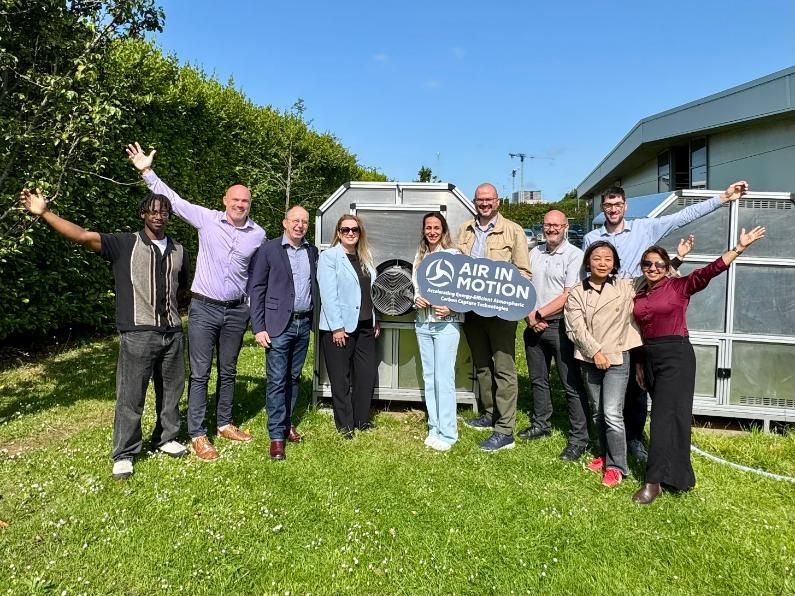NEW technology which removes carbon dioxide from the atmosphere is being trialled at Dublin Airport.
Developed at Trinity College Dublin (TCD), the innovation is designed to help reduce industrial emissions at a critical time in the fight against climate change.
“Atmospheric carbon capture innovations are crucial because they directly address one of the most pressing challenges we face today - reducing carbon emissions from industries that can't easily eliminate them at the source,” TCD’s Professor Wolfgang Schmitt explained.
Prof Schmitt developed the technology with Dr Sebastien Vaesen from Trinity’s School of Chemistry and AMBER, the Taighde Éireann – Research Ireland Centre for Advanced Materials and BioEngineering Research.
Their Direct Air Capture (DAC) offering focuses on “delivering scalable, energy-efficient atmospheric carbon dioxide capture solutions to help reduce industrial emissions”, they explained, adding that it has the potential to drive “real, measurable change in combating climate change”.
 Trinity College Dublin carbon dioxide capture technology is being trialled at Dublin Airport
Trinity College Dublin carbon dioxide capture technology is being trialled at Dublin AirportIts deployment at Dublin Airport, where a demonstrator has been in operation for three months, marked the first industrial-scale field test of the technology.
“By advancing and integrating this technology across industries, we are not only reducing emissions but also creating economic opportunities through supplying high-purity CO₂ that align with global sustainability goals,” Prof Schmitt said.
“This technology has the potential to be a cornerstone in the global effort to combat climate change, and the idea that this could contribute to a solution that makes a real difference is incredibly motivating,” he added.
Dr Sebastien Vaesen, who is the technical lead on the project, emphasised the transformative potential of the technology this week.
“Our technology is designed for industrial deployment, efficiently capturing CO₂ from the air while utilising low-grade waste heat from industries,” he said.
“We have enhanced CO₂ capture efficiency by integrating innovative design features and optimising key operational conditions using our laboratory test rig.”
He added: “The deployment at Dublin Airport is a key validation for scaling up and allows us to gather critical performance data in a live operational setting and fine-tune it for long-term sustainable operation.
“Moreover, we are strongly committed to the technology commercialisation, and this deployment is a major stepping stone.”
The project has been funded by a prestigious European Innovation Council (EIC) Transition grant (AirInMotion) and supported by the Enterprise Ireland.
Andrea Carroll, Director of Sustainability at daa, the operators of Dublin Airport, said they were “pleased” to support Trinity College Dublin's trial of carbon capture technology.
“This project offers daa an opportunity to explore carbon capture as a potential means of decarbonising our operations and industry,” she said.
“The collaboration between Trinity College Dublin and Dublin Airport exemplifies the kind of forward-thinking partnerships that are essential for driving innovation and real change as we all make our way towards a Net Zero world.”

